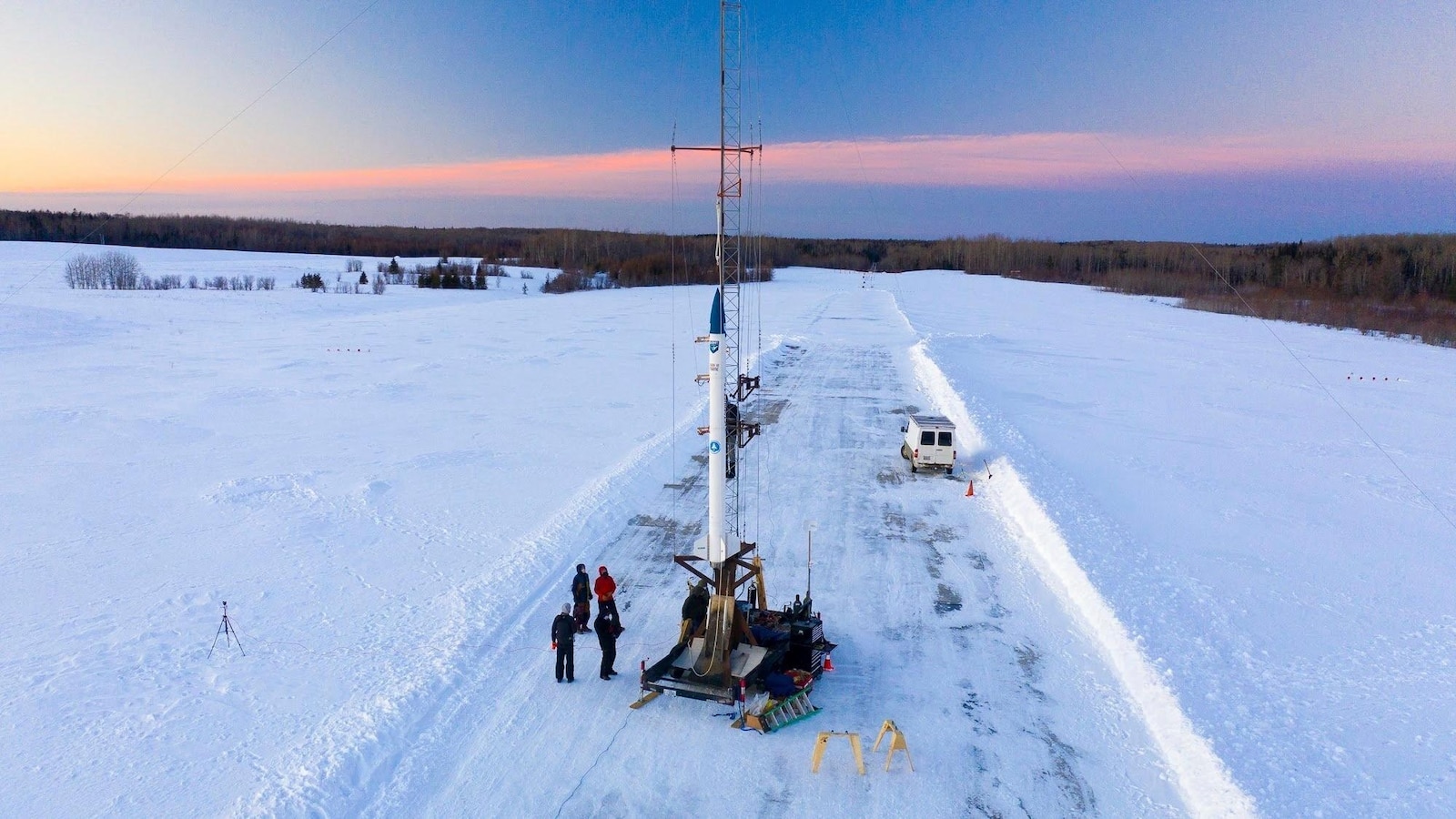
PORTLAND, Maine — Representatives for a Maine company that plans to send small satellites into space from the Northeast’s most rural state said they will start launches next year.
Brunswick-based bluShift Aerospace hopes to turn Maine into a hub for the launching of commercial nanosatellites and has been making progress toward that goal for more than three years. A successful recent round of fundraising means a commercial suborbital launch is on track to start in 2025, company officials said Tuesday.
The small satellite market currently relies on large companies, such as Elon Musk’s SpaceX, for deployment of satellites, and that leads to long wait times, said bluShift CEO and founder Sascha Deri. Launching small satellites from Maine can change that, Deri said.
“We see an enormous need for dedicated, small-lift satellite deliveries to space,” Deri said, adding that customers are “seeking rapid, affordable access to space and direct delivery to their desired orbit.”
The company’s progress on launching small satellites is happening during a time of tremendous growth in the industry, company representatives said.
The concept of small satellites was essentially an academic exercise two decades ago and the technology has since become one of the fastest growing in the satellite industry, bluShift representatives said. The worldwide market for a class of small satellites called CubeSats was valued at $210 million in 2021 and is expected to be worth more than four times that by 2030, the company said.
bluShift plans to use a pre-existing spaceport for initial launches and begin using Maine’s rural, remote Downeast coastline as a headquarters for launches as soon as 2026, company officials said. The company said it thinks the rural coast is a good location because it provides launch opportunities over the Atlantic Ocean directly into polar orbit with little interference.
The company launched a 20-foot prototype rocket to an altitude of more than 4,000 feet in its first test run in 2021. The rocket simulated a small payload by carrying stroopwafels, Dutch cookies.
bluShift also said Tuesday that Brady Brim-DeForest, managing partner at Late Stage Capital of Houston, will become chairman of the board of directors. Brim-DeForest said the company’s use of non-toxic biofuel and reusable rockets will help with its mission of “democratizing access to orbit.”
A Maine-based company has recently announced its plans to launch small satellites into space beginning in 2025. This exciting development marks a significant step forward for the state’s burgeoning aerospace industry and signals Maine’s entry into the rapidly growing field of satellite technology.
The company, which has not yet been named, is set to join a select group of companies around the world that are working to deploy small satellites into orbit. These satellites, also known as CubeSats, are much smaller and more cost-effective than traditional satellites, making them ideal for a wide range of applications, from Earth observation to telecommunications.
One of the key advantages of CubeSats is their ability to be launched in large numbers, allowing for more frequent and affordable access to space. This has opened up new opportunities for companies and researchers to collect data and conduct experiments in ways that were previously not possible.
The Maine company’s decision to enter the satellite market comes at a time when demand for satellite services is on the rise. With the increasing need for high-speed internet access, remote sensing capabilities, and global connectivity, small satellites are becoming an essential tool for businesses and governments around the world.
In addition to providing valuable services to customers, the launch of small satellites also has the potential to create new economic opportunities for Maine. By establishing itself as a hub for satellite technology, the state can attract investment, create high-tech jobs, and foster innovation in the aerospace sector.
While the specifics of the company’s satellite program have not yet been revealed, it is clear that Maine is poised to become a key player in the global satellite industry. With its strategic location, skilled workforce, and commitment to innovation, the state is well-positioned to capitalize on the growing demand for small satellite services.
As we look ahead to 2025 and beyond, the launch of small satellites by the Maine-based company promises to bring exciting new possibilities for space exploration and commercial applications. With its ambitious plans and cutting-edge technology, this company is set to make a significant impact on the future of satellite technology and solidify Maine’s position as a leader in the aerospace industry.


